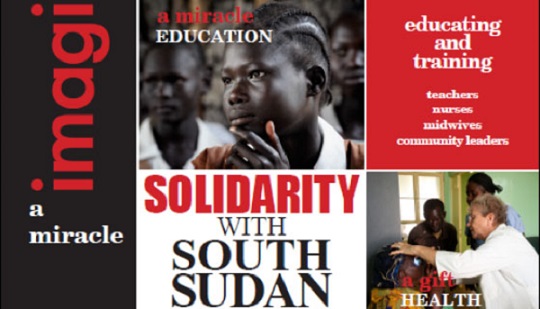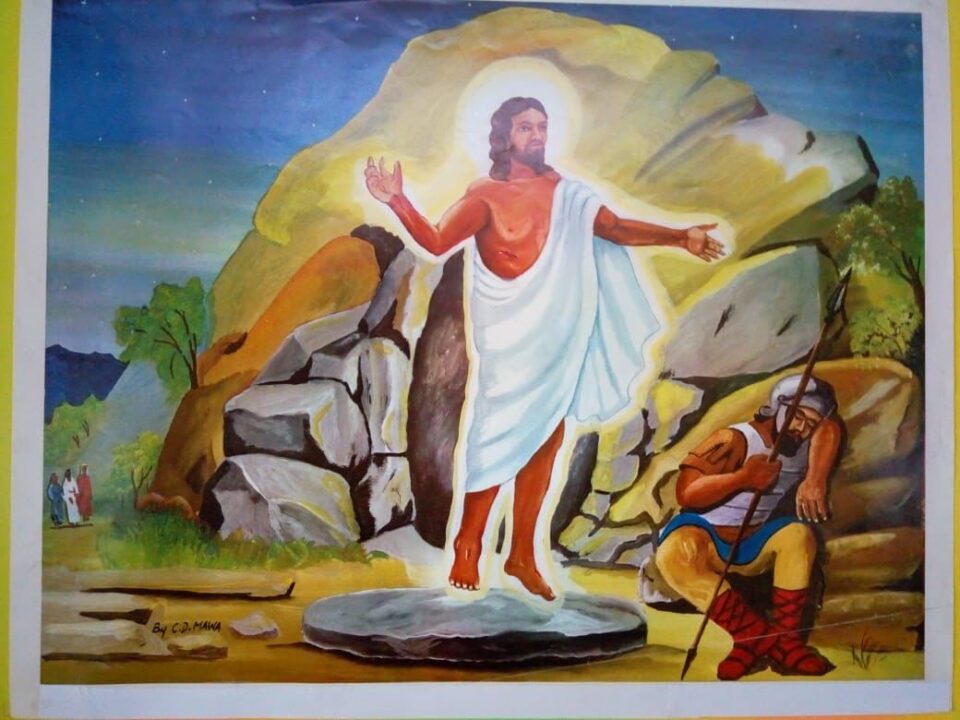- Contact us on - Contactez-nous sur - Contacte-nos em
- +233-30-277-8867/8
- +233-30-277-2548
- secam@secam.org
The Long View of South Sudan
The Long View of South Sudan
Solidarity with South Sudan (SSS) || By Bill Firman || 11 May 2017
 I returned from home leave a little over a month ago and have just completed trips within South Sudan from Juba to Rumbek, Wau, Yambio and Riimenze, for various meetings. This country is truly in a horrible mess and many people are suffering. As I ponder the situation, however, words from Bishop Kenneth Untener attributed to Blessed Oscar Romero come to mind: ‘It helps, now and then, to step back and take the long view. The kingdom is not only beyond our efforts, it is beyond our vision…’ It is indeed hard to see the solutions to the many immediate problems facing the people of South Sudan, but some great things are happening that have the potential long term to create a better South Sudan.
I returned from home leave a little over a month ago and have just completed trips within South Sudan from Juba to Rumbek, Wau, Yambio and Riimenze, for various meetings. This country is truly in a horrible mess and many people are suffering. As I ponder the situation, however, words from Bishop Kenneth Untener attributed to Blessed Oscar Romero come to mind: ‘It helps, now and then, to step back and take the long view. The kingdom is not only beyond our efforts, it is beyond our vision…’ It is indeed hard to see the solutions to the many immediate problems facing the people of South Sudan, but some great things are happening that have the potential long term to create a better South Sudan.
One of the keys is better education. Loreto Secondary Girls’ Boarding School in Rumbek has now grown to have 251 resident students – and last week, seven of their early graduates, qualified to be graduates of the Catholic University in Juba. Four years of secondary school and three at University, a great achievement by these girls in a society where 7% of girls are married before the age of 15 and 42% between 15 and 18. Again, I think of the terrible statistic in South Sudan: ‘A fifteen year old girl has more chance of dying in child birth than of graduating from secondary school’. Thanks to Loreto, and some other schools, this situation is changing. Sadly, the fighting continues and millions are displaced from their homes but a new generation is emerging. Loreto also has more than 600 boys and girls in their primary day school where they are achieving an extraordinary attendance rate, for South Sudan, of 95%. In three years, the primary school has gone from educating under trees to modern classrooms. Loreto is a sign of hope.
Loreto, however, and our Solidarity Teacher Training College in Yambio, are erecting massive security walls. This is the sad reality. We don’t really want to retreat behind walls but short-term protection is needed. In Yambio, we have in residence a record number of 125 students, from a wide mixture of tribes – potential future leaders of this nation. We are not just building a wall. The large new STTC library is being used extensively and more staff accommodation is under construction. In Wau, there are many displaced people too scared to return to their homes; but our Catholic Health Training Institute has continued to offer three-year residential training programmes producing registered nursing and midwifery graduates. There is a record number of 114 students, 42% of whom are female. This is yet another situation where ethnic diversity is respected and strong friendships are formed that bridge across traditional divides. We are planning to build a further CHTI dormitory so that was can accept more female students. More opportunity for women and girls is critical if we are to build a better South Sudan.
While walls may be necessary, our greatest protection continues to be the communities that we serve who appreciate what we are doing. In Riimenze we have an extensive, agriculture project. The rebels have passed through several times and the Government forces have also arrived in force; but our Solidarity community, our residence and the huge sustainable agriculture project have been left untouched. Yes, we have had to divert food intended for our STTC to help feed the almost 6,000 displaced people clustered around the Riimenze Church. We have also installed new bore holes for water and distributed tarpaulins and food, but now we are returning our focus to employing people on our farm who enjoy the dignity of earning their own living. I am, indeed, very proud of our Solidarity members who have remained heroically assisting these people in their time of emergency need. We are very grateful for the generous congregations and donor organizations and individuals that have enabled us to offer relief to these people.
‘Yes, I live in fear’, one man, I have known for several years, said to me, fear of the rebels and fear of government soldiers. One of our workers brought his young four year-old son, Bill, to greet me again. Bill will begin school next year. We hope and pray for his future and for the millions of young people in South Sudan. The solution in Riimenze could be quite simple. If the opposing armed forces were withdrawn, the people would happily return to their stable, subsistence living. In other situations, such as Malakal, it is far more complex. Malakal is traditionally a predominantly Shilluk town but it is now being populated only by Dinka, a situation manipulated into existence during this conflict. Such a situation is a recipe for instability. In the long view, education, more opportunity for women and well directed outside assistance will create a better South Sudan. It does help to take the long view.

